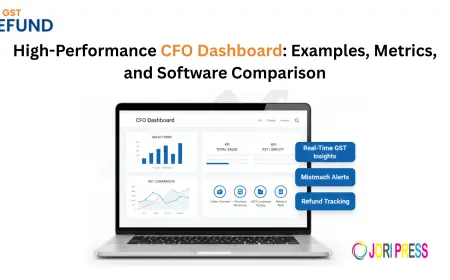Japan Cloud Computing Market 2030 Size and Share Breakdown with Forecast to 2030
Industry Key Highlights
According to TechSci Research report, “Japan Cloud Computing Market – By Region, Competition, Forecast and Opportunities, 2020-2030F”, the Japan Cloud Computing Market was valued at USD 21.11 Billion in 2024 and is expected to reach USD 72.33 Billion by 2030 with a CAGR of 22.60% during the forecast period.
Request For Sample Copy of Report For More Detailed Market insight: https://www.techsciresearch.com/sample-report.aspx?cid=24694#requestform
This exponential growth reflects a nationwide shift—both in public and private sectors—towards flexible, scalable, and cost-efficient IT infrastructures. From government-backed cloud-first strategies to enterprises modernizing legacy systems, cloud adoption in Japan is no longer a choice; it’s a strategic imperative.
The Public Cloud segment held the lion’s share in 2024, underscoring the country’s growing reliance on shared computing models that offer unmatched scalability, pay-as-you-go pricing, and access to innovative technologies such as Artificial Intelligence (AI) and Machine Learning (ML).
Emerging Trends Shaping the Japan Cloud Landscape
The cloud market in Japan is not just expanding—it’s evolving. The following emerging trends are reshaping the competitive landscape and fueling the next wave of transformation:
1. Rise of Industry-Specific Cloud Solutions
From manufacturing and finance to healthcare and education, Japanese enterprises are turning to vertical-specific cloud solutions. These industry clouds come equipped with customized tools, compliance frameworks, and data models tailored to niche operational needs.
This trend is accelerating time-to-value and improving user adoption rates across regulated industries.
2. Edge Computing Integration
To support latency-sensitive applications like autonomous vehicles, smart cities, and industrial IoT, companies are increasingly adopting edge computing. In Japan, where urban infrastructure is dense and digital expectations are high, edge-cloud synergy is becoming critical.
This integration allows real-time processing closer to the data source, reducing bandwidth usage and improving user experience.
3. Multi-Cloud & Hybrid Cloud Strategies
Japanese enterprises are embracing multi-cloud and hybrid cloud approaches to avoid vendor lock-in and maintain flexibility. By balancing public and private clouds, organizations are optimizing workloads, improving governance, and enhancing data portability.
These strategies also support compliance with Japan’s stringent data sovereignty regulations.
4. Focus on Green Cloud & Sustainability
Sustainability is no longer an option—it’s a business mandate. Companies are prioritizing green cloud computing solutions that reduce energy consumption and carbon emissions. Cloud providers are now offering eco-friendly data centers powered by renewable energy to meet the rising demand for sustainable IT operations.
5. Cloud-Native Application Development
With DevOps, containers, and microservices becoming mainstream, cloud-native development is enabling faster time-to-market for digital products. Japanese startups and traditional corporations alike are leveraging these platforms to drive innovation, scalability, and continuous integration/deployment (CI/CD) models.
Market Drivers Fueling Growth
Several powerful market drivers are propelling the Japan Cloud Computing Market forward:
1. Digital Transformation Across Industries
From smart factories and automated supply chains to digital banking and online education, every sector in Japan is undergoing a digital transformation. Cloud computing enables the agility, scalability, and innovation required to thrive in this new era.
Organizations are replatforming core systems, adopting Software-as-a-Service (SaaS), and exploring cloud-based analytics to gain actionable insights.
2. Demand for Data Security & Resilience
In the wake of rising cyber threats, businesses are turning to cloud providers for advanced security features like end-to-end encryption, zero-trust architecture, and real-time threat detection.
Moreover, cloud-based disaster recovery and business continuity solutions are ensuring operational resilience in Japan’s disaster-prone geography.
3. Surge in Remote & Hybrid Work Models
Post-pandemic, the shift to remote and hybrid work environments has accelerated cloud migration. Enterprises need secure, scalable, and device-agnostic platforms to support distributed workforces.
Cloud-based collaboration tools, virtual desktops, and workflow automation platforms are now indispensable to workplace productivity.
Major companies operating in the Japan Cloud Computing Market are:
- Microsoft Corporation
- IBM Corporation
- Oracle Corporation
- Salesforce Inc.
- SAP SE
- Dell Technologies Inc.
- Broadcom, Inc
- Huawei Technologies Co., Ltd
- Rackspace Technology, Inc.
- DigitalOcean, LLC
Customers can also request 10% free customization on this report.
Contact US:
Techsci Research LLC
420 Lexington Avenue, Suite 300,
New York, United States- 10170
Tel: +13322586602
What's Your Reaction?
 Like
0
Like
0
 Dislike
0
Dislike
0
 Love
0
Love
0
 Funny
0
Funny
0
 Angry
0
Angry
0
 Sad
0
Sad
0
 Wow
0
Wow
0

















































